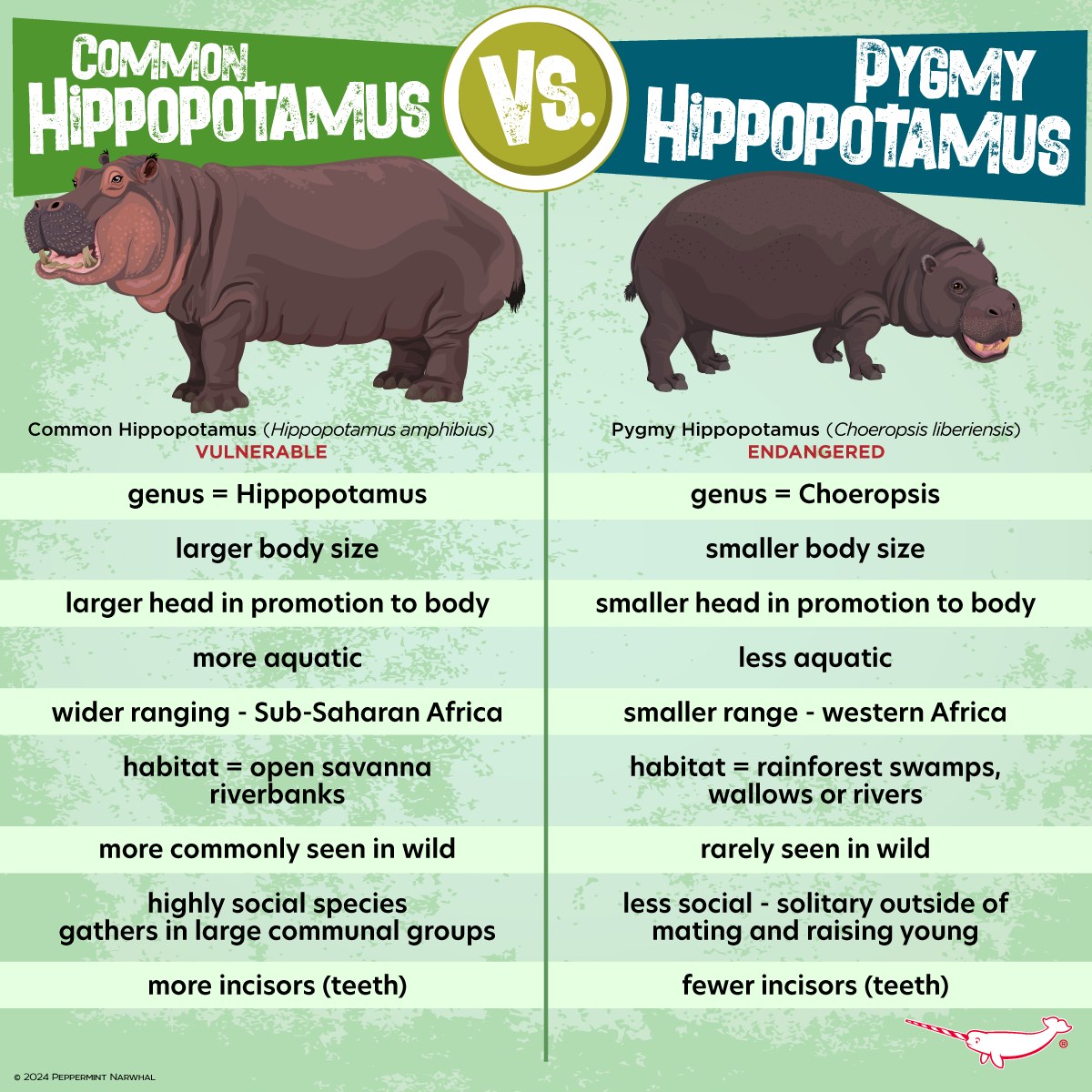– Discover the differences between the two extant species of hippos.
– Learn about the surprising habits and habitats of hippos.
– Explore the significance of hippos in our ecosystems and cultures.
In the grand tapestry of the natural world, few creatures capture our imaginations quite like the humble hippopotamus. With National Hippo Day upon us, it’s the perfect time to wade deeper into the waters of knowledge and celebrate these remarkable animals. Today, we’re embarking on an exploration, not just of one, but the two existing species of hippos, comparing and contrasting them in a fun, informative, and perhaps surprising journey. So, settle in, and let’s take a plunge into the world of these fascinating creatures.
**The Two Extant Species of Hippos**
At first glance, the river hippo, known scientifically as Hippopotamus amphibius, often steals the spotlight with its sheer size and semi-aquatic lifestyle. On the flip side, we have the much smaller, less-known pygmy hippo (Choeropsis liberiensis or Hexaprotodon liberiensis), leading a more secretive life in the dense forests of West Africa.
**Physical Differences: A Matter of Scale and Lifestyle**
Size is the most noticeable difference. The river hippo can weigh up to 3,300 pounds (and sometimes even more), dwarfing the pygmy hippo, which is about 600 pounds. Their physical appearance reflects their adaptation to different habitats – the river hippo’s large, barrel-shaped body is perfect for spending time in the water. In contrast, the pygmy’s sleeker, smaller frame suits its forested, more terrestrial environment.
**Dietary Habits: Grazers Vs. Browsers**
While both species are herbivores, their eating habits reflect their distinct lifestyles. River hippos are nocturnal grazers, venturing onto land at night to feed on grasses. Meanwhile, pygmy hippos, taking advantage of their forest surroundings, are browsers, eating ferns, fruits, and various plants in their denser, more vegetated habitats.
**Social Structures: Solitary Vs. Social Butterflies**
River hippos are known for their highly social behavior, forming groups called pods comprising up to 30 individuals. These pods play a crucial role in their daily life, offering protection and social interaction. Conversely, pygmy hippos are more solitary, often found alone or in small family groups, highlighting a significant behavioral divergence between the two species.
**Habitat and Conservation: A Shared Challenge**
Despite their differences, both species face similar threats. Habitat loss due to deforestation and expanding agriculture, along with poaching for their meat and ivory-like teeth, has put both types of hippos at risk. The river hippo is currently listed as vulnerable, with the pygmy hippo facing an even grimmer situation, classified as endangered.
**The Cultural and Ecological Significance of Hippos**
Beyond their fascinating biology, hippos hold profound significance in the cultures and ecosystems they inhabit. In ancient Egypt, the hippo was revered and symbolized as the deity Taweret, a protector of women and children. Ecologically, hippos play a vital role as mega-herbivores, shaping the landscape and pathways of water bodies through their activities. Additionally, their dung provides essential nutrients for aquatic ecosystems, although it can reduce oxygen levels and harm fish populations in excess.
**Our Role in Hippo Conservation**
As we marvel at the wonders of hippos this National Hippo Day, it’s crucial to reflect on our role in their preservation. We can contribute to their continued existence in the wild by supporting conservation efforts, promoting habitat protection, and raising awareness about the threats these magnificent creatures face.
**Engage and Share Your Hippo Fascination**
Now that you’ve dipped your toes into the vast pool of knowledge about these incredible creatures, I invite you to dive in even further. Have you ever had a close encounter with a hippo, whether in the wild or captivity? What fascinates you the most about these magnificent animals? Share your thoughts, experiences, and any questions in the comments below. Let’s celebrate Happy National Hippo Day by expanding our understanding and appreciation of our natural world and its essential members.
And before we part ways, if you want to commemorate this day with something special, consider shopping at [Peppermint Narwhal](www.peppermintnarwhal.com). Celebrate your love for hippos and support a great cause in the process.
**Conclusion**
In closing, it’s evident that both the river and pygmy hippos, despite their differences, play critical roles in their ecosystems and have captivated human interest for centuries. As we continue to learn and share knowledge about these fantastic creatures, we contribute to a more informed and compassionate world, ready to take action towards their preservation. Happy National Hippo Day!
Let’s carry the spirit of this celebration throughout the year, fostering a deep respect and enduring fascination for the natural world and all its inhabitants.
*****
Source Description
Happy National Hippo Day!
To celebrate, we thought we would post a VERSUS series to compare and contrast the differences between the two extant species of hippos.
Can you think of other differences between the two species? Share them in the comments.
Shop www.peppermintnarwhal.com


